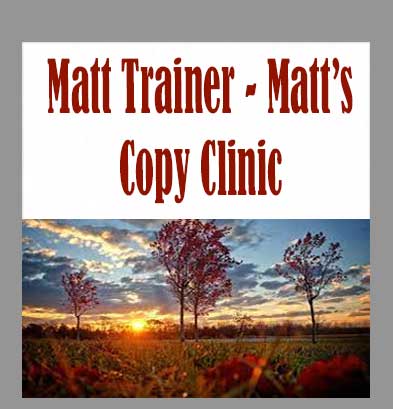
Janina Fisher, Frank Anderson & Candice Dickens – Integrative Complex Trauma Treatment Certification Training: Unlock the Art of Transformative Recovery with EMDR, IFS, and Somatic Approaches
$333
INSTANT DELIVERY !!!
Please check your email ( spam, junk box) after your order
Link will be sent to you in a hour
Description
Janina Fisher, Frank Anderson & Candice Dickens – Integrative Complex Trauma Treatment Certification Training: Unlock the Art of Transformative Recovery with EMDR, IFS, and Somatic Approaches download , Janina Fisher, Frank Anderson & Candice Dickens – Integrative Complex Trauma Treatment Certification Training: Unlock the Art of Transformative Recovery with EMDR, IFS, and Somatic Approaches review , Janina Fisher, Frank Anderson & Candice Dickens – Integrative Complex Trauma Treatment Certification Training: Unlock the Art of Transformative Recovery with EMDR, IFS, and Somatic Approaches free
Janina Fisher, Frank Anderson & Candice Dickens – Integrative Complex Trauma Treatment Certification Training: Unlock the Art of Transformative Recovery with EMDR, IFS, and Somatic Approaches
Our clients battle tortuous seen and unseen wounds that cripple their lives…
Whether it’s nightmares, anxiety, PTSD, emotions trapped in the body, a profound sense of disconnection…
Or, all of these together and more…
You need to meet their diverse trauma narratives with an integrative approach that acknowledges their unique experiences with tailored interventions.
That’s why we’ve curated a multi-modality Complex Trauma Certification Training with the masters in integrative trauma treatment including Janina Fisher, Frank Anderson, Deany Laliotis, Alexia Rothman, Leslie Korn, and many more.
Learn the most powerful trauma-focused interventions from EMDR, IFS, and Somatic approaches, so you can tailor unique experiences of each client — like cultural background, attachment style, trauma history, developmental stage, and more. Drawing from a rich tapestry of evidence-based techniques, you’ll gain the skills to create a personalized roadmap to treatment that’s as distinctive as each client.
- Access hidden vulnerabilities like shame, neglect, unlovability, and more with IFS techniques
- Zero in on trauma memories with EMDR strategies for developmental trauma and beyond
- Easy-to-use four-core trauma mastery skills you can’t miss
- Accelerate healing with neurobiological strategies
- Connect with clients who haven’t responded to talk therapy with Somatic, Sensorimotor, and Polyvagal interventions that target the mind-body intersection
- Uncover and uproot implicit and unconscious memories and assumptions with compassion
Plus, you’ll hear an exclusive dialogue between Gabor Maté and renowned child psychiatrist, Bruce Perry, on working with ADHD, Bipolar Disorder, Self-Harm, ODD, and other prevalent mental health diagnoses through the lens of developmental trauma.
How This Course Works
This training is divided into four easy-to-follow parts that fit together like building blocks, giving you crucial insights and skills to change your practice forever.
Part I — The most up-to-date education on neurobiology, diagnosis, pharmacology, and holistic interventions — featuring Janina Fisher, Leslie Korn, and more
Part II — Learn non-pathologizing somatic techniques to overcome dissociation, strong emotions, and other common, but challenging, obstacles — featuring Deany Laliotis, Abi Blakeslee, and more
Part III — Concrete training in EMDR, IFS, and Polyvagal Theory applications and more integrative trauma work — featuring Frank Anderson, Candice Richardson Dickens, Alexia Rothman, and more
Part IV — Finish by learning how to cultivate post-traumatic growth and truly give your clients life beyond trauma — featuring Deran Young and Jonah Paquette
Part I | Laying the Foundation for Modern Trauma Treatment
A Fast, Neurobiologically-Informed Approach to Trauma
Unravel the mystery of why trauma is difficult to remember and yet impossible to forget — with practical skills to understand neurobiology and know what memories mean.
Skill building:
- Identify the difference between implicit and explicit memories
- How to provide psychoeducation on the brain
- Mindful noticing exercises
- Symptom reframing
Nutrition Methods for Trauma to Enhance Sleep, Mood & Well-being
Teach your client nutritional and integrative strategies that support their physical well-being.
Skill building:
- Identify which clients are appropriate for holistic and non-pharmaceutical interventions
- Yoga, somatic, and breathing exercises for digestion, anxiety and panic
- Dietary, food preparation, and mindful eating strategies
Critical Variables in Working with Trauma Survivors
Dive into current research and view trauma through a phrase-orientated framework. Avoid the most common pitfalls in making accurate diagnoses and understand the nuances of dissociative disorders.
Skill building:
- Differentiate between types of trauma
- Simplify DSM-5-TR™ diagnostic codes
- Assess for co-occurring disorders
Essential Psychopharmacology Updates
Gain practical skills to enhance coordination of care with your client and their care team regarding medication, including antidepressants, anti-anxiety medications, insomnia treatments, and more. Plus, review ethical guidelines surrounding psychopharmacology.
Skill building:
- Help your clients adhere to their medication regimen
- Integrate new research into your understanding of clients’ symptoms
- Enhance care team collaboration
Part II | Integrative Trauma Skills to Overcome Common & Uncommon Challenges
Mastering The Craft of Treating Trauma: Core Skills
Gain techniques that you can use moment-to-moment with clients in session to help them process pain and assign meaning to their experiences.
Skill building:
- Evaluate readiness and motivation for change
- Moment-to-moment client-tracking
- Identify parts of self and help clients relate to aloneness
- Access client strengths and create a motivational future template
Help Clients Who Can’t Feel
Use Sensorimotor Psychotherapy skills to gently tap into the terror that keeps these clients prisoners in the present moment and compassionately disempower the “living legacy” of your client’s trauma.
Skill building
- Identify a hierarchy of fear and phobia defenses
- Understand symptoms as serving protecting functions
- Increase emotion tolerance
- Let go of YOUR need to “go deeper”
Bring the Body into Therapy
Learn easy-to-implement and simple somatic exercises to create awareness and attunement that further develop your clinical acumen to tune into subtle changes in your client’s body.
Skill building
- Identify attachment styles
- Conduct a somatic session from start to finish
- Nervous system stabilizing tools
- Help clients create a vocabulary of sensation words
- Tracking Activation and Settling Cycles
- Rupture and Repair Exercises
Part III | In-Demand Techniques You Can Use Tomorrow
The Many Faces of EMDR
Through videotaped illustrations of actual clients, you’ll learn about the different ways EMDR can be applied to treat disturbing life experiences that have a lasting impact, and how EMDR can transform life-long difficulties with self and others.
Skill building
- Identify past-present connections relating to the client’s current difficulties
- Treat a PTSD episode that has roots in developmental trauma
- Give your clients the knowledge to evolve their skills over time beyond the remission of symptoms
- Conceptualize the relational component of memory work as part of the journey toward healing
Racial Trauma and the Polyvagal Response
Learn how the Polyvagal pathway plays a role in Black client’s reactions to violence, police brutality, acts of racism, and discrimination.
Skill building:
- Identify triggers and symptoms of racial trauma, as well as how it’s processed in the brain
- Treat reactive symptoms and behaviors associated with the microtrauma of racism, such as defensiveness and excessive worrying about safety and death
- Explore how therapy is affected by the emotional reactivity of both Black and non-Black clinicians when treating Black clients
IFS to Transcend Trauma
Learn Internal Family Systems techniques to reduce relational trauma and early attachment wounds that often are associated with complex PTSD.
Skill building:
- Unload clients’ distorted thoughts and beliefs; discharge troubling physical sensations; and release feelings of unworthiness, loneliness, and unlovability
- Address clients’ protective client parts in a trauma-specific manner, and gain their permission to access hidden vulnerabilities
- Apply neuroscientific understanding to therapeutic decisions about extreme symptoms
- Overcome common adaptations of relational trauma, like neglect, shame, and substance use
Applied IFS and Polyvagal Theory
Explore real case demos of how to seamlessly integrate IFS and PVT in treatment.
Skill building:
- Help clients develop attuned, trusting relationships with their hyperaroused and hypoaroused parts
- Create more adaptive “survival responses”
Recognize the impact of your own internal state on clinical work and use this awareness to facilitate client regulation and healing
Part IV | Give Your Clients Life Beyond Trauma
Happily Even After
Drawing from positive psychology, mindfulness-based approaches, and cutting-edge neuroscience you will learn how positive psychological practices can help reduce suffering and foster greater well-being.
Skill building:
- Understand key brain regions linked to well-being and how positive neuroplasticity can help strengthen these areas
- Explore key principles for increasing happiness and well-being, including awe, gratitude, compassion-based approaches, savoring, and psychological richness
Brené Brown’s Approach to Untangling Shame & Fostering Resilience
Deran Young will walk you through the most important findings in Brené Brown’s research. She connects these findings with practical applications for you and your clients.
Skill building:
- Recognize shame and understand its triggers
- Explore narratives that prevent cultural connection
- Practice critical awareness by reality-checking the messages and expectations that are driving shame
- Own and share your story to truly experience empathy and build courage and authenticity
- Use language and story to bring light to shame and allow yourself to get your needs met
BONUS with Gabor Maté!
Healing the Wounds of Trauma
With SPECIAL GUEST, Bruce Perry, MD, renowned child psychiatrist, and co-author of the NYT Best-Selling What Happened to You? (with Oprah Winfrey) and The Boy Who Was Raised as a Dog joins Gabor Maté in this in-depth workshop based on Gabor’s celebrated book, The Myth of Normal: Trauma, Illness, & Healing in a Toxic Culture.
Gabor and Bruce’s powerful conversation will shift your understanding of traumatic stress and how as therapists, we can help people recover and heal. Together, they’ll explore with you the most common misconceptions around trauma and chronic stress, how and why we get stuck, and the specific pathways to healing. They will dive into the most prevalent mental health diagnoses therapists are seeing today including: ADHD, Depression, Bipolar Disorder, Self-Harm, ODD, and Eating Disorders… and how we should be treating them through the lens of developmental trauma.
Elevate your professional standing in the field of trauma therapy!
Achieve the recognition and credibility you deserve as a trauma therapist with this exclusive course. This level II trauma certification training will equip you with the knowledge and skills that set you apart from your colleagues, establishing your expertise with clients and employers.
By enrolling in this training, you will:
- Position yourself as a trusted authority in trauma therapy
- Cultivate unparalleled credibility that distinguishes you as a leader
- Acquire advanced techniques and strategies to effectively address and treat trauma-related issues
- Expand your expertise and stay ahead of the latest developments in trauma therapy
- Develop a robust toolkit that empowers you to provide exceptional care to your clients
Don’t settle for mediocrity. Join our training program and take your career in trauma therapy to new heights, earning the recognition and respect you deserve.
Frequently Asked Questions:
- Innovative Business Model:
- Embrace the reality of a genuine business! Our approach involves forming a group buy, where we collectively share the costs among members. Using these funds, we purchase sought-after courses from sale pages and make them accessible to individuals facing financial constraints. Despite potential reservations from the authors, our customers appreciate the affordability and accessibility we provide.
- The Legal Landscape: Yes and No:
- The legality of our operations falls into a gray area. While we lack explicit approval from the course authors for resale, there’s a technicality at play. When procuring the course, the author didn’t specify any restrictions on resale. This legal nuance presents both an opportunity for us and a boon for those seeking budget-friendly access.
- Quality Assurance: Unveiling the Real Deal:
- Delving into the heart of the matter – quality. Acquiring the course directly from the sale page ensures that all documents and materials are identical to those obtained through conventional means. However, our differentiator lies in going beyond personal study; we take an extra step by reselling. It’s important to note that we are not the official course providers, meaning certain premium services aren’t included in our package:
- No coaching calls or scheduled sessions with the author.
- No access to the author’s private Facebook group or web portal.
- No entry to the author’s exclusive membership forum.
- No direct email support from the author or their team.
We operate independently, aiming to bridge the affordability gap without the additional services offered by official course channels. Your understanding of our unique approach is greatly appreciated.
- Delving into the heart of the matter – quality. Acquiring the course directly from the sale page ensures that all documents and materials are identical to those obtained through conventional means. However, our differentiator lies in going beyond personal study; we take an extra step by reselling. It’s important to note that we are not the official course providers, meaning certain premium services aren’t included in our package:
Refund is acceptable:
- Firstly, item is not as explained
- Secondly, Item do not work the way it should.
- Thirdly, and most importantly, support extension can not be used.
Thank you for choosing us! We’re so happy that you feel comfortable enough with us to forward your business here.








Reviews
There are no reviews yet.